Organic wet food is enjoying growing popularity because it combines high-quality ingredients, gentle processing, and sustainability. But what exactly makes organic wet food special? What benefits does it offer, and what should you look for when buying it?
|
What makes organic wet food special?
Organic wet dog food differs from conventional dog food through the use of high-quality, organically certified ingredients. Organic dog food is a trend among dog owners. The meat comes from species-appropriate animal husbandry, and the fruit and vegetables are organically grown. It contains no artificial additives and is free from flavor enhancers, colors, and preservatives. This supports healthy digestion and can help prevent allergies. Gentle processing (cold filling) preserves the important nutrients. The high meat content is based on high-quality and easily digestible protein, which provides your dog with essential amino acids. These are necessary not only for building and maintaining protective muscles, but also for a functioning immune system. By choosing organic wet dog food, you're not only doing something good for your dog, but also supporting the environment: organic certifications guarantee ingredients from environmentally friendly farming and species-appropriate animal husbandry. The dog's acceptance of the food is also very important. Many dogs prefer the juicy organic wet food to dry food.
The main advantages of organic wet food
💧 High moisture content:
Supports kidney function and improves hydration. Kidney disease is one of the most common health problems in dogs, especially as they age, and is a leading cause of death in older dogs. Many dogs don't drink enough water, which puts a strain on the kidneys and can lead to long-term health problems such as urinary stones or kidney disease. Organic wet food consists of approximately 70-80% moisture. Due to the high water content of organic wet food, your dog automatically absorbs more fluids, which relieves strain on the kidneys and keeps the urinary tract healthy. Particularly beneficial for older dogs, dogs with kidney problems, or dogs that drink little.
✅ Better digestibility:
Thanks to natural ingredients and no artificial additives, organic wet food is easily digestible. Many dogs are sensitive to low-quality ingredients in industrial dog food. Common symptoms include:
- ❌ Flatulence
- ❌ Diarrhea
- ❌ Skin problems or itching
- ❌ Food allergies
Because organic wet food is free from artificial additives, low-quality fillers, and inferior meat, it is particularly well-tolerated. Dogs with sensitive stomachs or food intolerances benefit from a natural diet. Feeding organic wet food also eliminates the risk of food mites developing during storage and contamination.
🥬 Rich in nutrients: High-quality organic wet food is often cold -filled to preserve valuable nutrients as best as possible. Extreme heat treatment of industrially produced food particularly affects the heat-sensitive vitamins C (immune system and cell health), B1 (energy metabolism and nerve function), B6 (protein metabolism of the nervous system), and B9 (cell growth and blood formation). Enzymes that help with the provision and absorption of nutrients are also destroyed by pressure and heat. Valuable, unsaturated oils and fats can also be easily oxidized by heat, thus losing their cell-protective function.
🐾 Suitable for picky dogs or dogs with food restrictions: Due to its natural flavor, most dogs enjoy this food. Many dogs prefer wet food to dry food because it has a more intense smell and a more natural taste . Picky dogs who often leave their dry food uneaten generally prefer organic wet food. Wet food is also often a better choice for older dogs or dogs with dental problems, as it is easier to chew.
How do I find the best organic wet food for my dog?
Not all organic wet food is automatically high-quality. Keep the following in mind:
🔍 What meat source is included? High-quality organic meat should be listed first on the label. Generic terms like "meat and animal by-products" should be avoided. They indicate poor quality ingredients.
🔍 What additives are there? No artificial preservatives or flavor enhancers, e.g., yeast extract (contains hidden glutamates) or E250, E202 – these substances are suspected of being harmful to health.
🔍 Does the food contain a lot of fillers? Fillers like corn, dried beet pulp, or excessive grains impair digestion. They can lead to digestive problems or promote allergies.
🔍 How sustainable is the food? Look for locally sourced ingredients, species-appropriate animal husbandry, and environmentally friendly packaging.
In principle, organic dog food can be a good option for all dog owners who eat consciously.

💡 Conclusion: Is organic wet food worth it for your dog?
Yes! Organic wet food offers numerous benefits for your dog's health and is also more environmentally friendly than conventional food. The high meat content, high-quality ingredients, and absence of artificial additives make it a species-appropriate and healthy choice.
Here are the most important points again:
- ✅ High meat content & natural ingredients - No fillers
- ✅ Easily digestible & healthy – Ideal for sensitive dogs
- ✅ High moisture content – Supports kidney function
- ✅ Sustainability & animal welfare – organic-certified production
With the right organic wet food for your dog, nothing stands in the way of a healthy and natural diet that makes him completely happy!
FAQs
What does "open declaration" mean?
The " open declaration " in the context of dog food refers to the transparent disclosure of information about the composition of the food in terms of the individual ingredients and their processed quantities.
"Open declaration" means that we transparently list all ingredients and their exact percentages in Alpenwuff food. So you always know exactly what's in every bag of Alpenwuff.
An open declaration serves to give pet owners clear information about the food so they can make informed decisions about their daily diet. By reading the declaration, pet owners can determine which main ingredients are contained in the food. This helps to rule out allergens, evaluate the quality of a food, and develop an understanding of a dog's behavior. For example, if a food consists primarily of corn, this is often reflected in its behavior. An open declaration therefore makes it possible to ensure that the food meets the dog's individual needs and promotes its health. In addition, the declaration ideally includes information about the manufacturer and the manufacturing process, which creates confidence in the product quality and traceability of the raw materials.
Why should cold-pressed food be better?
The comparison between extruded and cold-pressed dog food can be shown using several aspects that illustrate the advantages of cold-pressed food:
- Gentle manufacturing process: Cold-pressed feed is produced at lower temperatures (60°C). In contrast, extruded feed is produced at high temperatures (up to 200°C), resulting in a greater loss of natural nutrients.
- Better nutrient preservation: The gentle manufacturing process helps to better preserve the natural nutrients of the ingredients, similar to steam cooking. Due to the gentle temperatures, natural vitamins and nutrients in cold-pressed food remain largely intact.
- Better digestibility: Cold-pressed food breaks down quickly into its components in the dog's stomach and doesn't bloat when exposed to liquid like most extruded food briquettes. This means the nutrients are quickly accessible and digestible. The easier digestibility of cold-pressed food can help dogs experience fewer digestive problems. This leads to less bloating and an overall happier dog.
To what temperature is the food heated?
Our feed is gently cold-pressed at low temperatures to preserve nutrients. The cold press reaches a maximum temperature of approximately 60°C.
"Food without compromise" - We want more dogs to be fed healthy food!

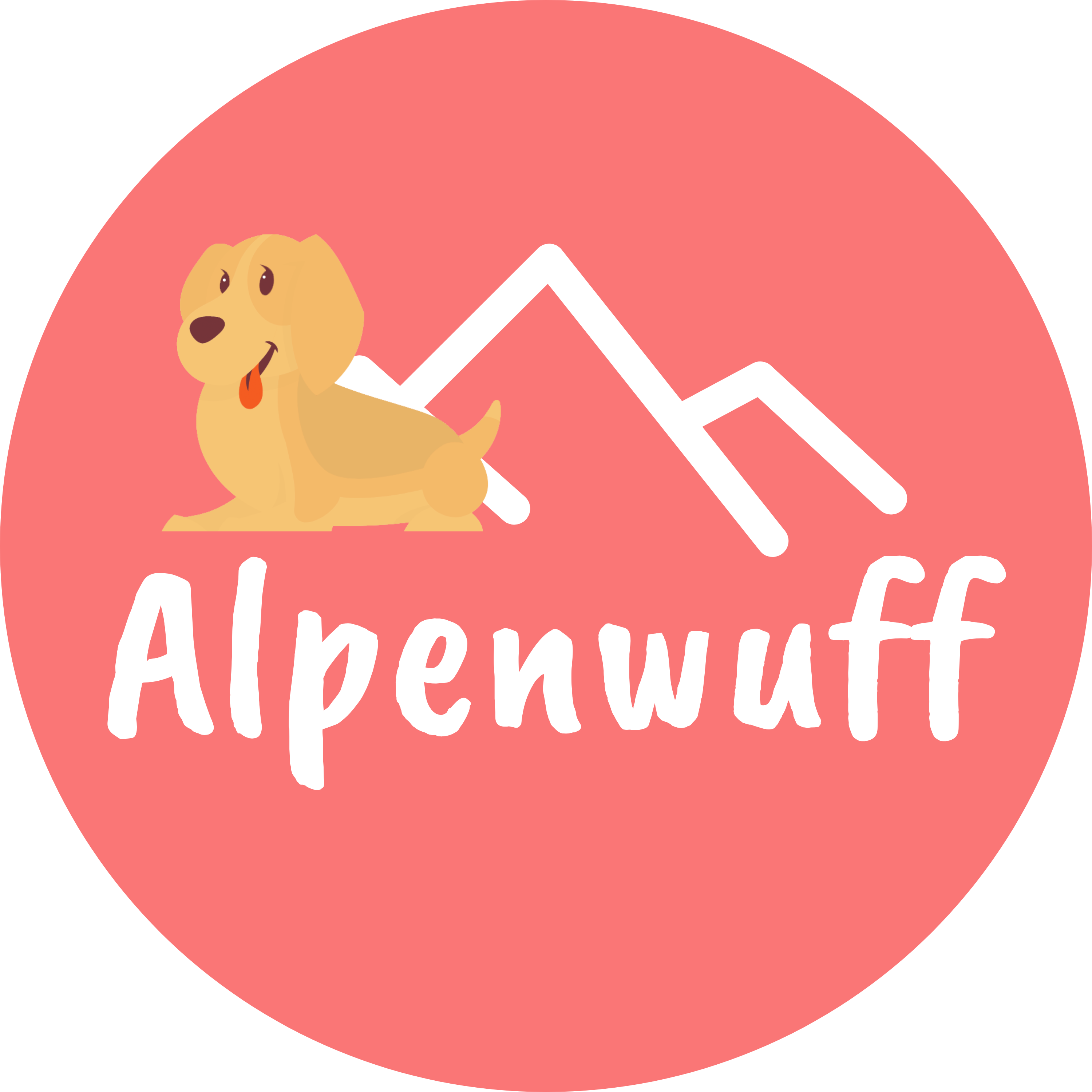
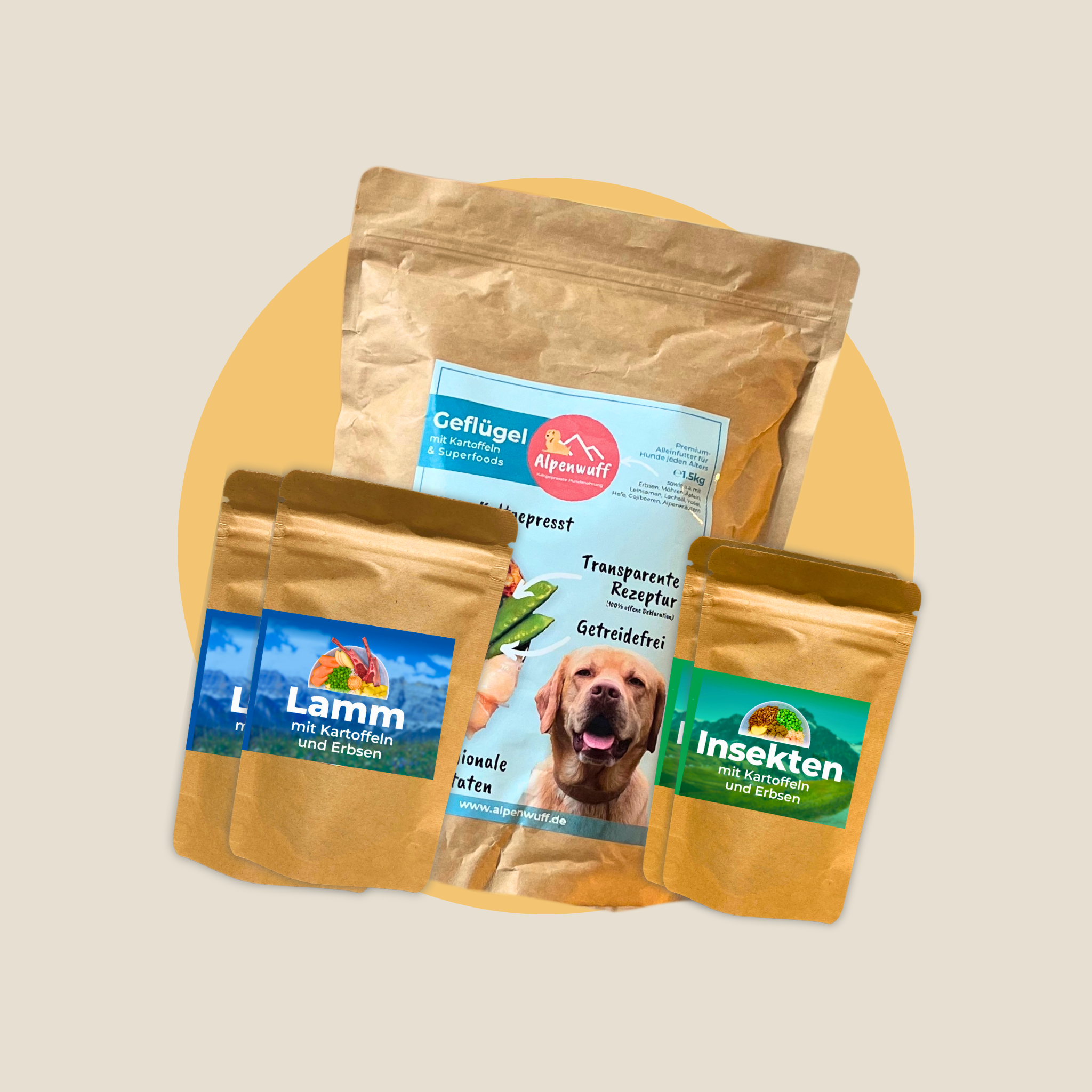
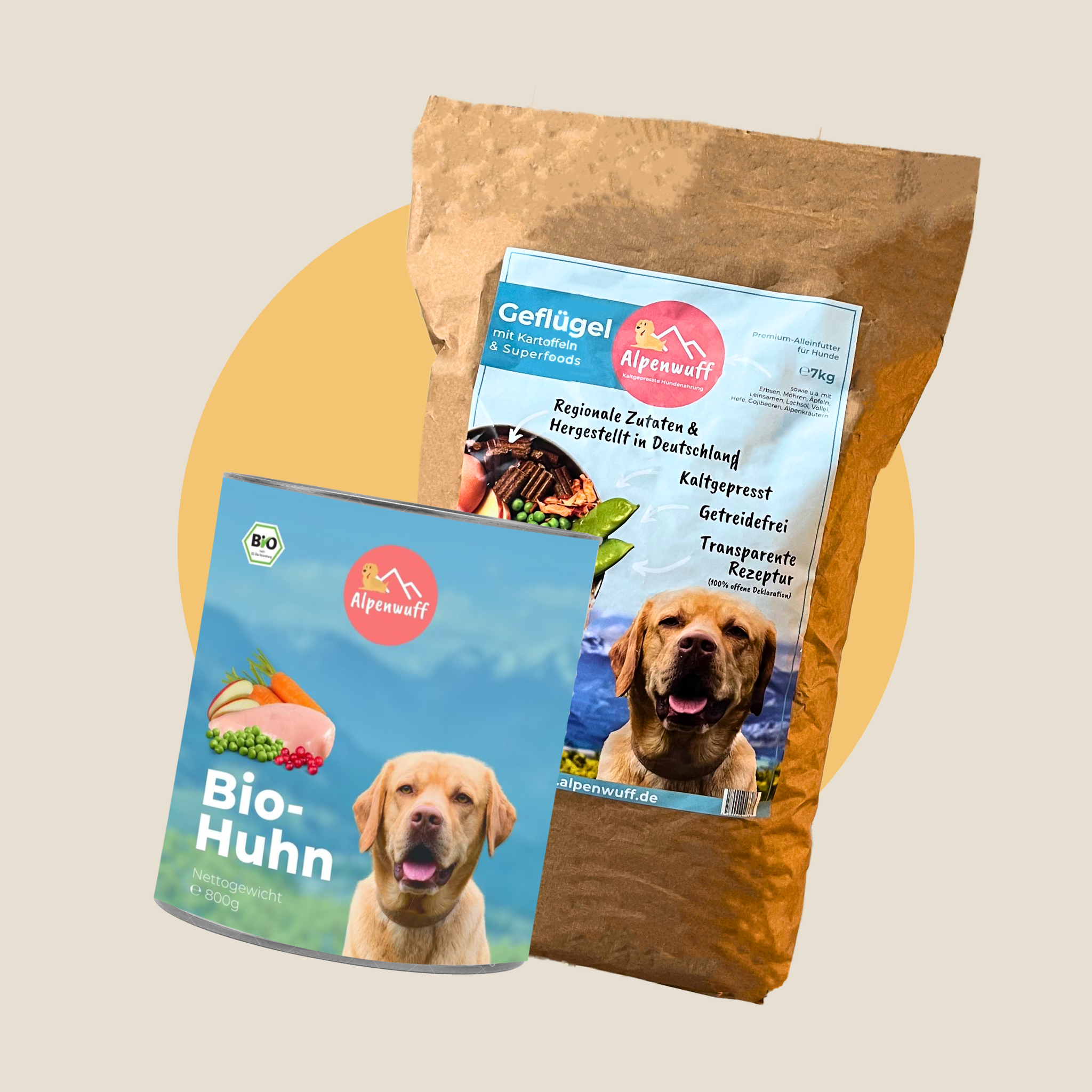
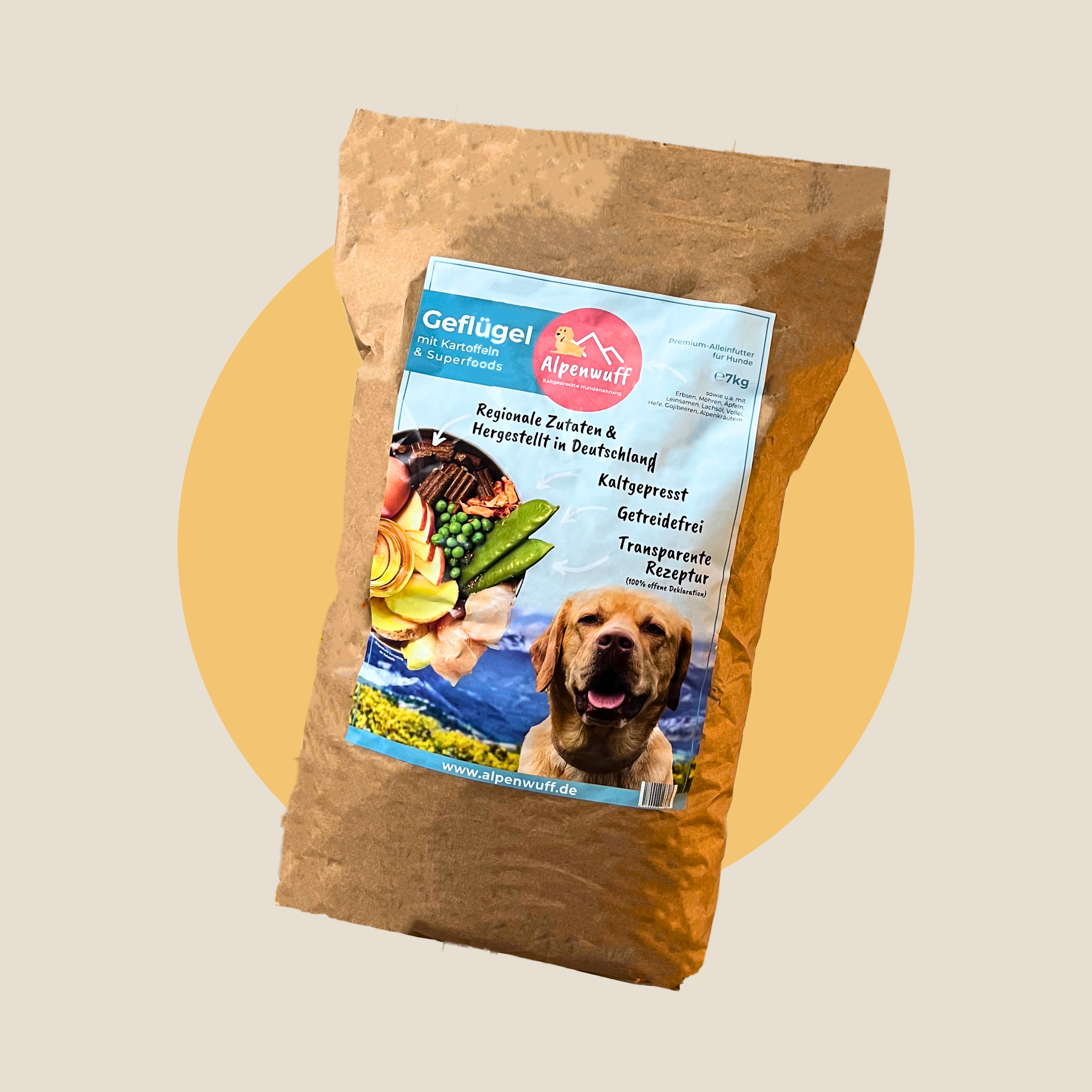
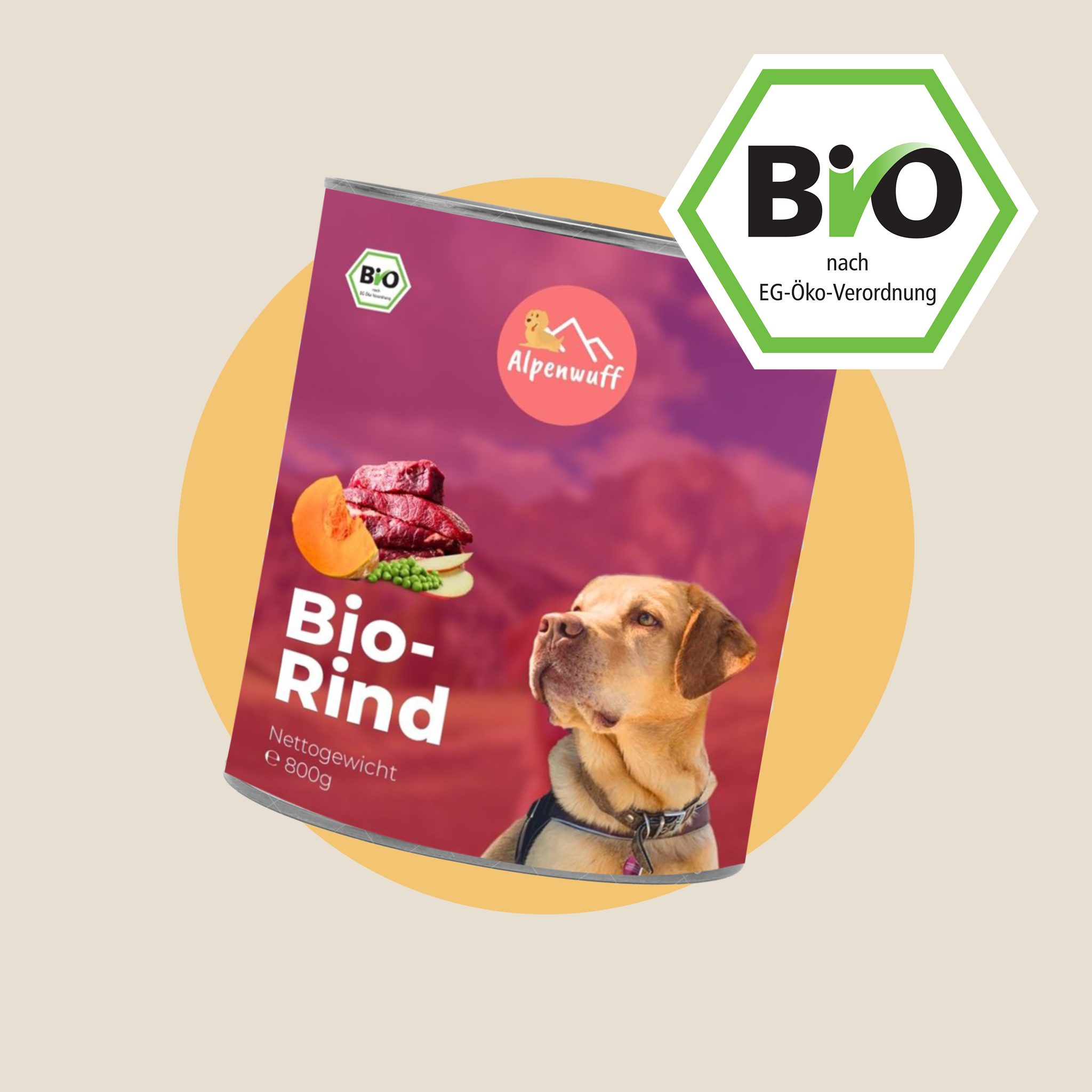
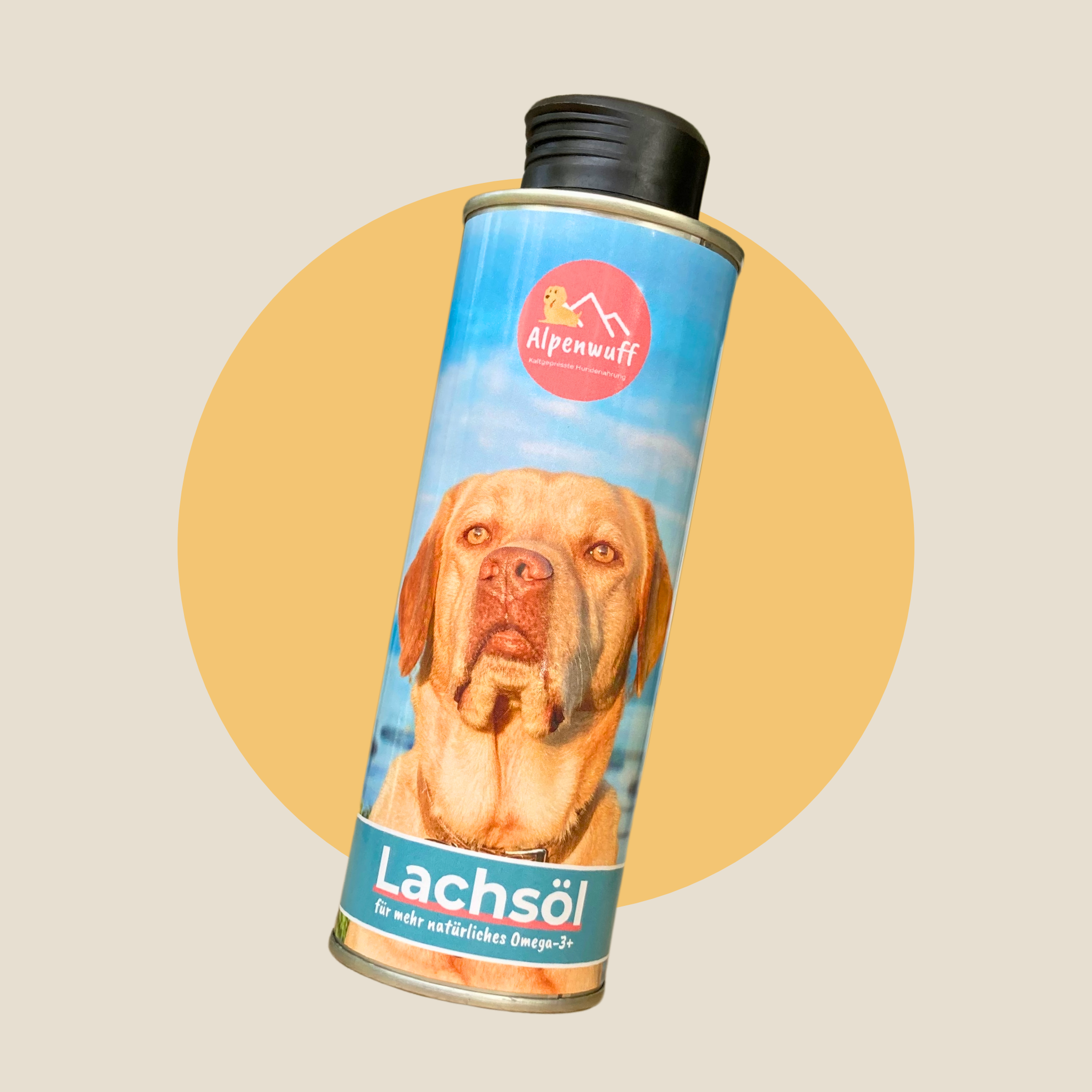





Leave a comment
All comments are moderated before being published.
This site is protected by hCaptcha and the hCaptcha Privacy Policy and Terms of Service apply.